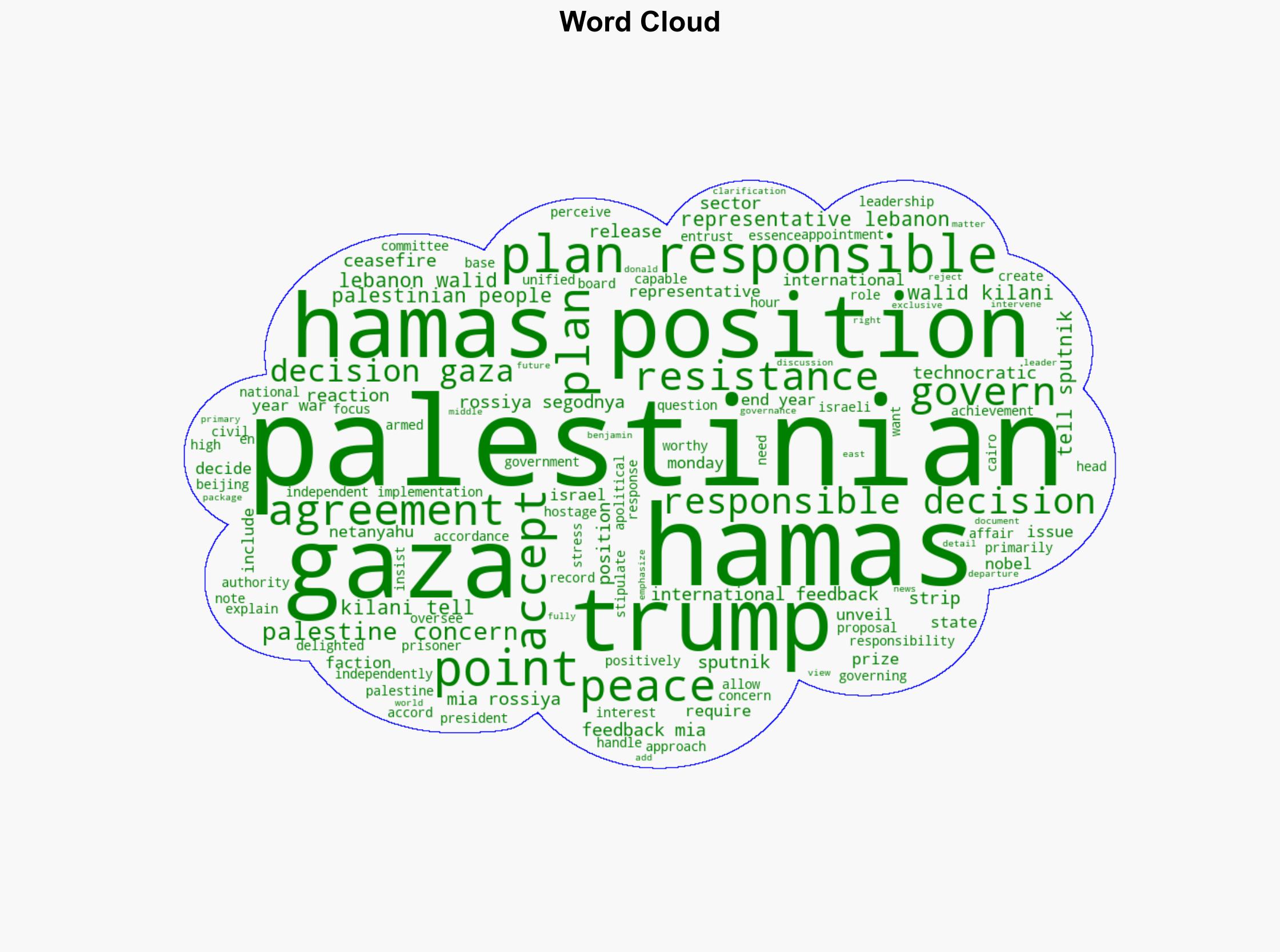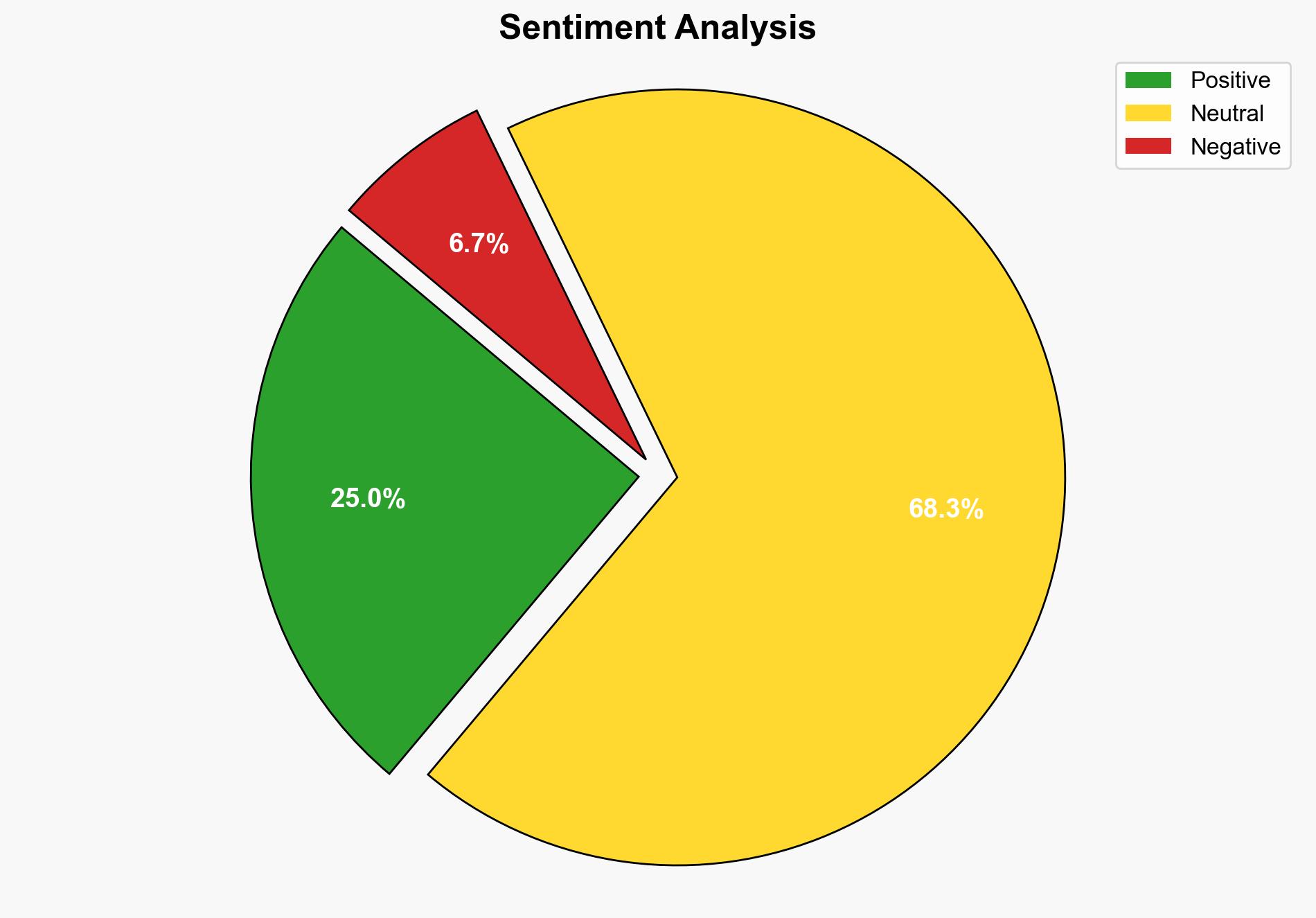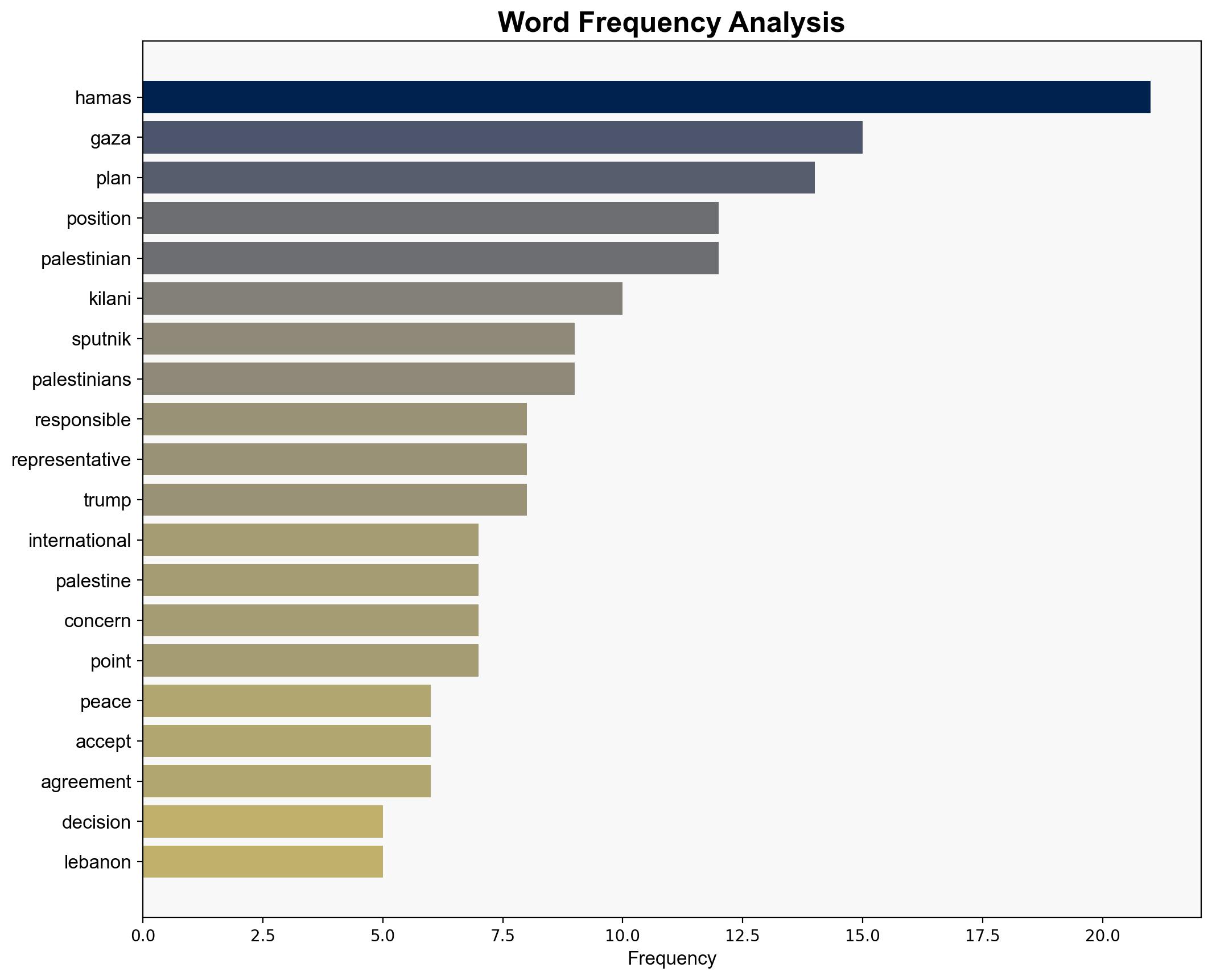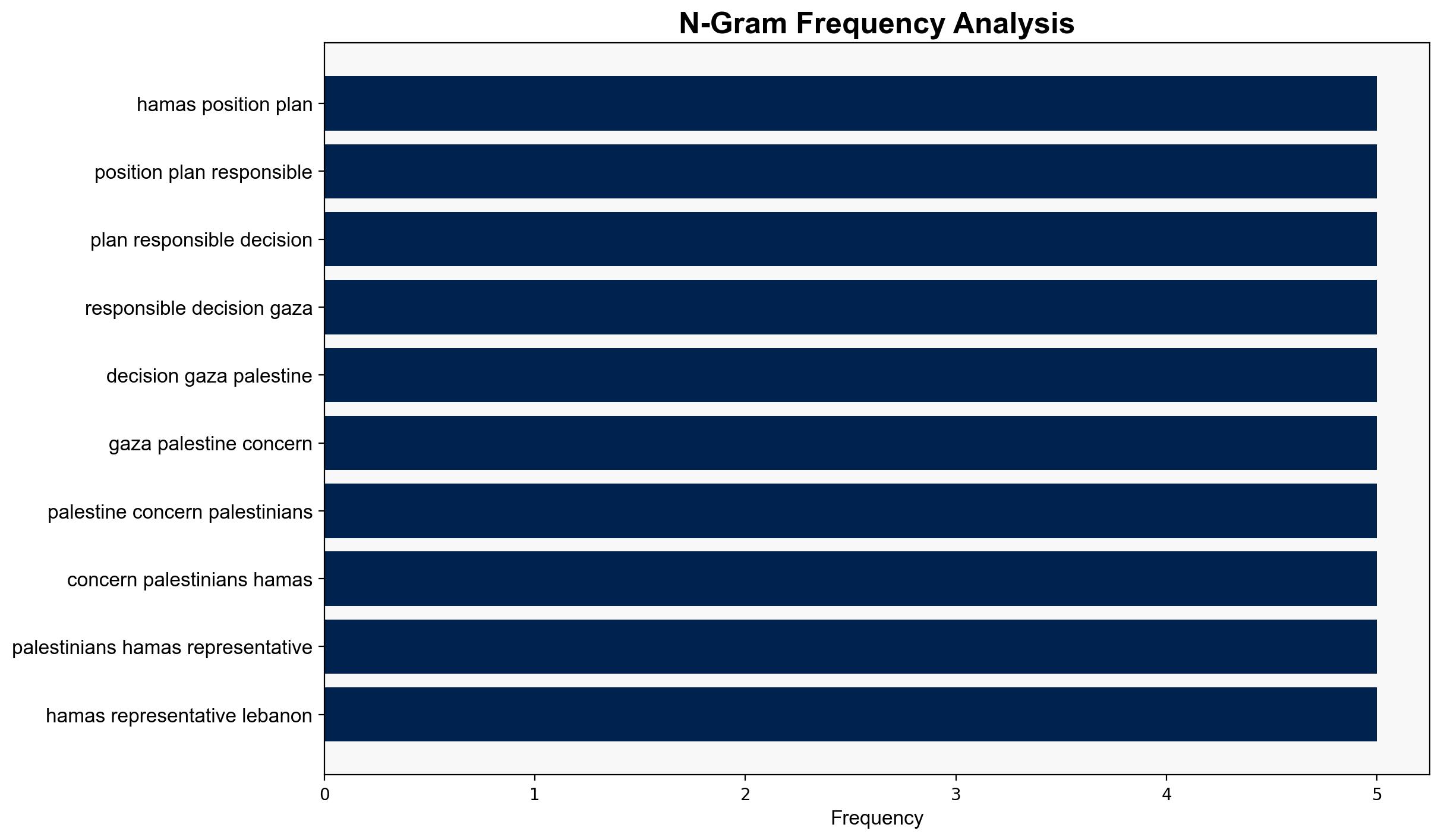Hamas Position on Peace Plan Responsible – Representative – Sputnikglobe.com
Published on: 2025-10-04
Intelligence Report: Hamas Position on Peace Plan Responsible – Representative – Sputnikglobe.com
1. BLUF (Bottom Line Up Front)
The most supported hypothesis is that Hamas is cautiously open to discussing the peace plan but requires significant clarifications and assurances regarding Palestinian governance and prisoner release. Confidence in this assessment is moderate due to the ambiguous nature of the statements and potential strategic deception. It is recommended to engage in diplomatic dialogue to clarify Hamas’s conditions and explore potential concessions that could facilitate a ceasefire.
2. Competing Hypotheses
1. **Hamas is Open to Negotiation**: Hamas, as represented by Walid Kilani, is open to negotiating the peace plan, viewing it as a potential opportunity to achieve key objectives such as prisoner release and increased governance autonomy.
2. **Hamas Rejects the Peace Plan**: Despite Kilani’s statements, Hamas fundamentally rejects the peace plan, perceiving it as a threat to their control and influence in Gaza, and is using diplomatic language to buy time or leverage negotiations.
Structured Analytic Technique: **Analysis of Competing Hypotheses (ACH) 2.0** was used to weigh these hypotheses. The first hypothesis is better supported by Kilani’s emphasis on responsibility and the need for a unified Palestinian position, suggesting a willingness to engage under certain conditions.
3. Key Assumptions and Red Flags
– **Assumptions**: It is assumed that Kilani’s statements reflect the broader stance of Hamas leadership. There is also an assumption that the peace plan’s details are negotiable.
– **Red Flags**: The repetitive nature of Kilani’s statements could indicate a rehearsed narrative rather than genuine openness. The lack of specific details on what constitutes a “responsible” plan raises questions about Hamas’s true intentions.
4. Implications and Strategic Risks
– **Geopolitical Risks**: A misinterpretation of Hamas’s stance could lead to escalated tensions if the peace plan is perceived as a unilateral imposition.
– **Cascading Threats**: Failure to address Hamas’s concerns could result in renewed hostilities, undermining regional stability.
– **Psychological Dimensions**: The perception of the peace plan among Palestinians could influence public support for Hamas or alternative governance structures.
5. Recommendations and Outlook
- Engage in direct dialogue with Hamas representatives to clarify their conditions and explore potential compromises.
- Monitor public sentiment in Gaza to gauge support for the peace plan and adjust diplomatic strategies accordingly.
- Scenario Projections:
- **Best Case**: Successful negotiation leads to a ceasefire and improved governance in Gaza.
- **Worst Case**: Breakdown in talks results in renewed conflict and humanitarian crisis.
- **Most Likely**: Prolonged negotiations with intermittent escalations as both sides test each other’s resolve.
6. Key Individuals and Entities
– **Walid Kilani**: Hamas representative in Lebanon, articulating the group’s position on the peace plan.
– **Donald Trump**: Former U.S. President, associated with the peace plan proposal.
– **Benjamin Netanyahu**: Former Israeli Prime Minister, whose position influences the Israeli response to the plan.
7. Thematic Tags
national security threats, regional focus, geopolitical strategy, conflict resolution




